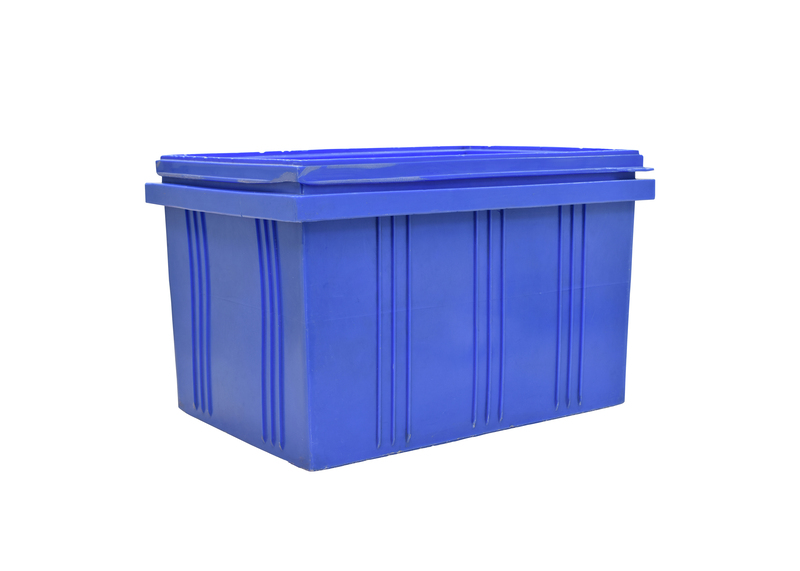Everything You Need to Know About Storing a Freezer When Not Using It
Are you planning to store your freezer for an extended period--whether you're moving, renovating, or simply not using it for a while? Properly storing a freezer when not in use is crucial to ensure its longevity, prevent unpleasant odors, and avoid damage. In this comprehensive guide, you'll learn how to store a freezer safely, the steps to prepare it, and tips for maintaining its condition during idle periods. Keep reading to discover the best practices for unused freezer storage.
Why Is Proper Freezer Storage Important?
Many homeowners overlook the importance of correct storage procedures for freezers. Improperly stored freezers can develop mold, bad smells, or even mechanical issues that lead to costly repairs. By following expert advice on how to store your freezer when not in use, you can prolong its lifespan and ensure it's ready for use when needed.
Benefits of Proper Freezer Storage
- Prevents mold and mildew growth
- Avoids unpleasant odors
- Protects electrical and mechanical components
- Minimizes risk of rust and corrosion
- Preserves the freezer's energy efficiency and warranty

Preparation Steps Before Storing Your Freezer
Whether you have a chest freezer, upright freezer, or a deep freezer, the basic steps for prepping your appliance for storage are quite similar. Here's a detailed checklist to follow:
1. Empty the Freezer Completely
- Remove all food items: Ensure there's nothing left inside the freezer. Perishable goods can cause odors and attract pests.
- Discard expired or spoiled food--this will help avoid contamination and extra mess during cleaning.
2. Defrost the Freezer
- Unplug the freezer and leave the door open to allow all ice to melt.
- Place towels or a shallow pan to collect melting water and prevent floor damage.
- This step prevents water pooling inside the freezer during storage.
3. Clean the Freezer Thoroughly
- Wipe down interior surfaces with a mixture of baking soda and warm water.
- Don't forget the shelves, drawers, and door seals.
- Rinse with clean water to remove any cleaning solution residue.
- Completely dry the interior to prevent mold and mildew.
4. Clean and Inspect Exterior Components
- Dust and clean the exterior, including the coils and back of the freezer.
- Inspect for cracks, rust, or damage that should be addressed before storage.
Choosing the Right Storage Location
The place you choose to store your unused freezer can significantly impact its condition. Here's what to consider:
Should a Freezer Be Stored Indoors or Outdoors?
- Indoors: The ideal environment is a dry, temperature-controlled area such as a garage, basement, or spare room.
- Outdoors storage is not recommended, as weather fluctuations can damage the appliance's components and cause rust or premature wear.
Environmental Considerations
- Avoid damp areas which can promote rust and corrosion.
- Choose a spot away from direct sunlight and heat sources.
- Ensure there is enough space around the freezer for ventilation and to avoid trapping moisture.
How to Store a Freezer for a Long Time
After preparation and selecting a safe storage spot, observe these best practices for long-term storage of your freezer:
Keep the Door Propped Open
- Use a small object or purpose-built wedge to keep the freezer door slightly ajar.
- This prevents the build-up of moisture, mold, and odors.
Protect Your Freezer from Dust and Pests
- Cover the freezer with a breathable fabric dust cover (never use plastic wrap, as it can trap moisture).
- Place mothballs or rodent repellents around--never inside--the freezer to keep pests at bay.
Elevate the Freezer Off the Ground
- If possible, place the freezer on wooden blocks or pallets to keep it off potentially damp floors.
Check the Freezer Regularly
- Carry out periodic inspections (every few weeks or months) to ensure there's no moisture, mold, or pest activity.
- Re-air out the interior if needed.
How to Move and Transport a Freezer for Storage
If you are relocating your freezer to a storage unit or a new home, proper handling is essential to prevent damage.
Steps for Safe Freezer Transportation
- Defrost and dry the freezer a day before moving.
- Secure all removable parts inside with packing material.
- Keep the freezer upright during transit. Laying it sideways can harm the compressor.
- Use furniture pads and straps to protect the appliance and prevent scratches.
Storage Units: What to Know
- If storing in a facility, pick a climate-controlled unit for optimal freezer preservation.
- Label and position your freezer for easy access in future.
Common Mistakes to Avoid When Storing a Freezer
Below are some frequent errors homeowners make when storing a dormant freezer:
- Leaving food or moisture inside, which breeds mold and pests.
- Sealing the door shut, encouraging bad smells to develop.
- Using airtight plastic covers, making it prone to moisture entrapment.
- Storing the freezer in extreme temperatures or humid conditions.
- Failing to check on the freezer for long periods.
Reactivating Your Freezer After Storage
Ready to use your freezer again? Follow these steps for a smooth restart:
Inspect Before Plugging In
- Check the inside and outside for any debris, pests, or moisture accumulated during storage.
- Ensure power cords and plugs are intact.
Wipe Down and Air Out
- Wipe all interior surfaces with a mild cleaner (again, baking soda and water is a good choice).
- Let the freezer air out for a few hours.
Allow Standing Time If Moved
- If the freezer was moved on its side, let it stand upright for at least 4-6 hours before plugging it in to allow compressor fluids to resettle.
Plug In and Test
- Reconnect to power and allow the freezer to reach the correct temperature before restocking with food.
Frequently Asked Questions About Freezer Storage
Can You Store a Freezer in a Storage Unit?
Yes, you can store a freezer in a storage unit, but make sure it's clean, dry, and the door is propped open. A climate-controlled storage unit is preferable to prevent moisture issues.
How Long Can You Store a Freezer Without Using It?
A properly prepared freezer can be stored unused for years without issue, provided it's kept dry, ventilated, and regularly checked for issues.
Should a Freezer Door Be Left Open or Closed During Storage?
Leave the door open slightly to ensure ventilation and prevent odors or mold.
What to Do If a Freezer Smells After Storage?
Thoroughly clean the interior with a baking soda solution, air it out, and place an open box of baking soda inside for a few days to neutralize any lingering odors.

Expert Tips for Optimal Freezer Storage
- Label and date your appliance before storage for easy identification.
- Place a moisture absorber or open box of baking soda inside the cavity if the storage area is known for humidity.
- Secure the power cord to avoid tripping or pulling accidents during movement.
- Never stack heavy objects on top of the freezer during storage, as it may dent the surface or damage the doors.
Conclusion: Protect Your Investment with Careful Freezer Storage
Storing your freezer safely when not in use is simple yet vital. Whether you're temporarily shutting down your appliance, moving, or placing it in long-term storage, following the above steps ensures your freezer stays in optimal condition. By taking the time to clean, dry, air out, and properly locate your freezer, you protect your investment and ensure it's ready to serve you again when needed.
Remember: A few proactive steps go a long way in prolonging the life and performance of your freezer--even when it's out of sight and not in use!
Looking after your freezer now means fewer hassles and repair costs in the future. Use these guidelines every time you need to store your freezer, and enjoy peace of mind between uses.



